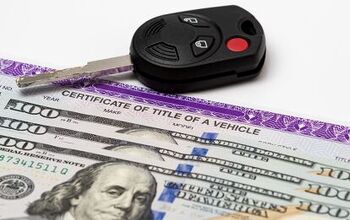Traffic Camera Companies Renew Push in Indiana
The residents of six cities with a combined population of over 2.7 million voted last year to outlaw the use of automated ticketing machines on their streets. The photo enforcement industry is now working overtime to make up for lost ground by expanding operations into states where neither red light cameras nor speed cameras have been well received. Lobbyists are hopeful that Indiana could be the next state to reconsider.
Powerful members of the General Assembly earlier this month introduced legislation to authorize the use of traffic cameras. House Majority Leader William C. Friend (R-Elkhart) introduced House Bill 1199 authorizing the widespread use of speed cameras. Senate Majority Caucus Chairman Jim Merrit (R-Marion County) authored a companion measure, Senate Bill 527, legalizing red light cameras. Photo ticketing vendor Affiliated Computer Services (ACS) has given lawmakers $51,650 with most of the funds directed to the House and Senate Republican campaign committees and Republican Governor Mitch Daniels. Democrats have also gotten in on the action. In October, Arizona-based camera company American Traffic Solutions gave state Representative Pat Bauer (D-South Bend) $1000. State Representative Shelli VanDenburgh (D-Lake County) cosponsored the speed camera bill.
This legislation allows the state highway department to lower the speed limit on a freeway or a locality to designate a “work zone” where a photo radar device would be set up to issue tickets worth $300 for a first offense to $1000 for a third. The systems could also be used in school zones during times when class is in session. Tickets would be mailed within six business days of the alleged violation and notice must be sent by certified mail.
The Senate red light camera bill gives the private company up to sixty days to drop the $150 ticket into a regular mail box. The state government would take a thirty percent share of the net profit from citations issued by municipalities and would suspend the registration of any vehicle owner that did not receive or respond to a ticket. The measure also repeals the definition of “official traffic control devices” under Indiana law, allowing private corporations to regulate traffic instead of the “authority of a public body.”
If adopted, the laws would take effect in July 2011. A copy of SB 527 is available in a 350k PDF file at the source link below.
Senate Bill 527 (Indiana General Assembly, 1/6/2011)
[Courtesy: Thenewspaper.com]
More by The Newspaper
Latest Car Reviews
Read moreLatest Product Reviews
Read moreRecent Comments
- Todd In Canada Mazda has a 3 year bumper to bumper & 5 year unlimited mileage drivetrain warranty. Mazdas are a DIY dream of high school auto mechanics 101 easy to work on reliable simplicity. IMO the Mazda is way better looking.
- Tane94 Blue Mini, love Minis because it's total custom ordering and the S has the BMW turbo engine.
- AZFelix What could possibly go wrong with putting your life in the robotic hands of precision crafted and expertly programmed machinery?
- Orange260z I'm facing the "tire aging out" issue as well - the Conti ECS on my 911 have 2017 date codes but have lots (likely >70%) tread remaining. The tires have spent quite little time in the sun, as the car has become a garage queen and has likely had ~10K kms put on in the last 5 years. I did notice that they were getting harder last year, as the car pushes more in corners and the back end breaks loose under heavy acceleration. I'll have to do a careful inspection for cracks when I get the car out for the summer in the coming weeks.
- VoGhost Interesting comments. Back in reality, AV is already here, and the experience to date has been that AV is far safer than most drivers. But I guess your "news" didn't tell you that, for some reason.


































Comments
Join the conversation
RedFlex and Automated Traffic Systems (ATS), the major two traffic camera companies, send grifters into towns promising riches beyond the wildest imagination just for the taking. Dazzled by the camera company’s briefcases full of Powerpoints, City Leaders drink the Kool Aid and approve signing a commitment for hundreds of thousands if not millions of dollars of City money to the carpet baggers. With gleeful back-slapping and handshakes all around, the City leaders began proclaiming “It’s all about safety!” and “It’s for the kids!”. Keeping the red light cameras out is a simple matter of mandating any yellow light calculation less than 3.99 seconds be rounded up to 4.0 seconds and adding 0.50 seconds to any calculated or mandated value to account for traffic signal system delays. This is equally effective at the city or state level. At 4.5 seconds or more, the cameras are gone or are never installed in the first place. Ending Speed entrapment is a more difficult. You can develop a broad set of winning strategies but they must be executed on a location-by-location basis. You hammer on the fact there is no problem for which the camera is the preferred solution. For school zones, challenge the perimeter of the zone and how can no non-reckless speeding incidents as investigated by 10 years of school, police, and newspaper archives, be reduced from zero? How is zero a safety problem?
Something like this must be going on behind the scenes in Connecticut right now. http://www.courant.com/news/politics/hc-speed-cameras-0118-20110117,0,2180956.story Our local rag says only that "The Connecticut Conference of Municipalities", a "group of legislators", and "Town Officials" are working towards passing an enabling statute. No direct mention of riches being promised by vendors, but there is a note that current state law sends most of each traffic fine directly to the state's coffers, something that "would have to change because the technology would have to pay for itself" says a local police chief. I wonder for whom he intends to work after retiring from the force?